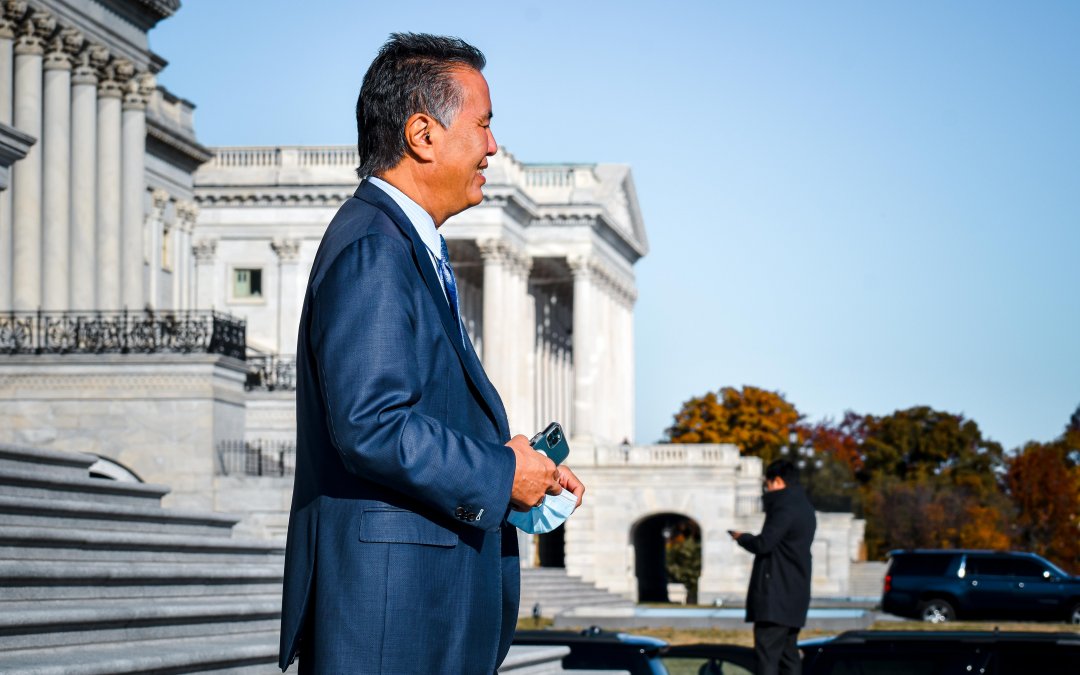WASHINGTON – Only 5% of the new enrollees in the Veterans Health Administration over the past 18 months lived in rural areas.
Such statistics are disconcerting to lawmakers like Rep. Mike Bost (R-Ill.), who called on the Department of Veterans Affairs to do better.
“While VA has an entire office dedicated to serving rural and remote veterans, I am concerned that this office has not kept pace with the changing veteran population,” Bost, chair of the House Committee on Veterans’ Affairs, said Thursday.
Rural veterans frequently encounter longer travel distances to VA facilities, struggle with unreliable internet connections, and have less information about the benefits available, acknowledged Dr. Shereef Elnahal, a department undersecretary.
The VA under the Biden administration has aimed to address long-traveling distances by expanding access to telehealth services, Elnahall said. In 2023, over 770,000 rural veterans received telehealth services, and nearly half identified telehealth as their preferred method of care, he said.
However, 27% of rural veterans do not have internet access at home, according to the VA’s website. John Mikelson, a veteran advocate who testified Thursday, cautioned that telehealth is not a viable option for veterans who are “not tech-savvy.”
The challenge of reaching faraway facilities is particularly difficult for Navajo veterans, testified Buu Nygren, president of the Navajo Nation.
The Navajo Nation only has three VA clinics, and the nearest VA clinics are often hundreds of miles away in Phoenix, Albuquerque, N.M., and Salt Lake City. Nygren noted that a Navajo veteran living in Shiprock, N.M., would need to travel approximately 428 miles round trip — approximately 8 hours — to reach the nearest VA medical center in Albuquerque. Nygren suggested that lawmakers build a VA clinic on Navajo land to help ease such burdens.
Rep. Mark Takano (D-Calif.), the ranking Democrat on the committee, said he would be interested in working with fellow lawmakers to do so.
“We want to make sure that our veterans are provided for no matter where they live,” Bost added, saying he appreciated “members of the committee for standing shoulder to shoulder with me in a bipartisan manner to do that.”
Many committee members also voiced frustration with the VA’s system for veterans to seek reimbursement for travel. The VA has replaced in-house kiosks at VA facilities with an online portal known as the Beneficiary Travel Self-Service System.
Rep. Mariannette Miller-Meeks (D-Iowa) said she has heard from many rural veterans who say the electronic portal is difficult to navigate. She expressed frustration with the VA for using its money to train staff rather than work with veterans to improve their care.
“I don’t care to increase the bureaucracy of the VA with people who aren’t delivering care,” Miller-Meeks said. “What I want is for people to receive care.”
In an interview with Medill News Service, Marisa Schultz, a veteran from Illinois who testified on Thursday, said she thinks care for rural veterans is moving in the right direction.
“I feel like I was heard today,” Schultz said. “I thought it was a very good committee hearing and I feel confident that the VA is taking concerns seriously.”

